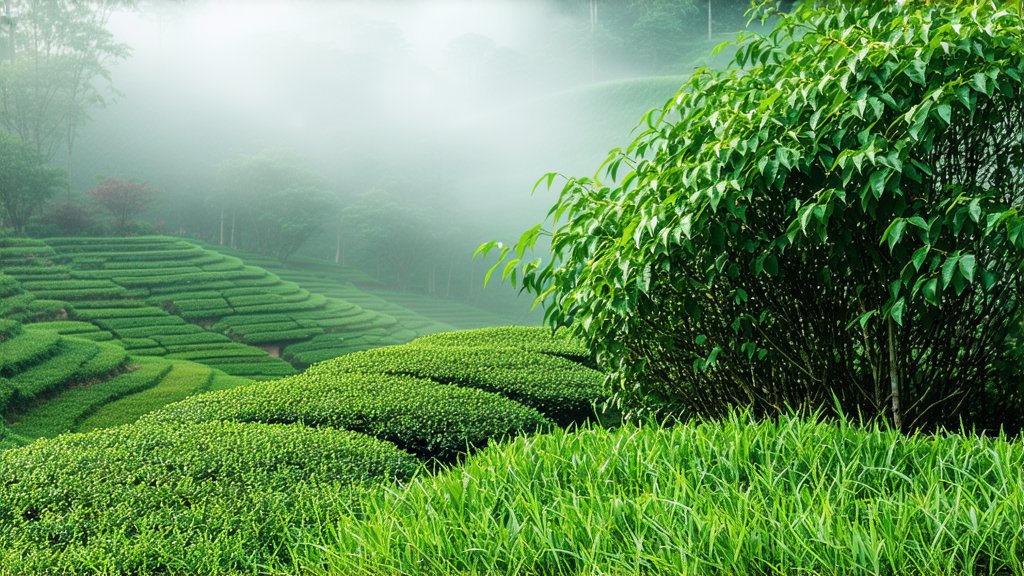
Bai Hao Yin Zhen, often referred to as the "Silver Needle" due to its pristine white appearance, is one of the most revered types of Chinese white tea. This exquisite tea hails from the Fujian province, nestled in the lush mountains where the climate and soil are ideal for growing tea plants. Its history dates back over 200 years, with origins traced to the Fuding county of Fujian. Over the centuries, Bai Hao Yin Zhen has become synonymous with purity and elegance, cherished by tea connoisseurs worldwide.
Bai Hao Yin Zhen is made exclusively from the buds of the tea plant, Camellia sinensis, before any leaves have had a chance to develop. These buds are covered in fine, silvery hairs (hence the name "Silver Needle"), giving them a strikingly beautiful and unique appearance. The harvesting process is meticulous, typically done in early spring when the new growth is at its most tender and nutrient-rich. The picking is selective, ensuring only the finest buds are chosen for this premium tea.
The production of Bai Hao Yin Zhen involves minimal processing, which is a hallmark of all white teas. After being handpicked, the buds are laid out in a controlled environment to wither naturally. This withering process allows the natural moisture within the buds to evaporate slowly, enhancing their subtle flavors and aromas. The buds are then dried either through sun drying or using low-temperature ovens. This gentle drying preserves the delicate nature of the tea, resulting in a product that is both light and fragrant.
When brewed, Bai Hao Yin Zhen offers a sublime tea experience. The liquor is pale, almost translucent, with a slightly golden hue. The flavor profile is exceptionally refined, characterized by a sweet, smooth taste with floral and fruity notes. There is an underlying hint of freshness and a clean finish that leaves a lasting impression on the palate. The aroma is equally enchanting, with a bouquet that can include hints of apricot, honey, and fresh hay.
To fully appreciate Bai Hao Yin Zhen, it is essential to use proper brewing techniques. The recommended water temperature for brewing this delicate tea is between 75-80°C (167-176°F). It is advisable to use a glass teapot or a clear vessel to admire the aesthetic beauty of the unfurling buds during infusion. A typical serving size is about 3-5 grams of tea per 200 ml of water, but this can be adjusted based on personal preference. The first infusion should be steeped for about 2-3 minutes, with subsequent infusions gradually increasing in steep time. Bai Hao Yin Zhen can be resteeped multiple times, each infusion revealing different layers of flavor and aroma.
In addition to its delightful taste and aroma, Bai Hao Yin Zhen is also celebrated for its numerous health benefits. Like other white teas, it is rich in antioxidants, which help combat free radicals in the body. It contains significant amounts of polyphenols and catechins, compounds known for their anti-inflammatory properties and potential to boost heart health. Regular consumption of Bai Hao Yin Zhen may also aid in weight management, improve skin health, and enhance overall well-being.
Cultural significance plays a vital role in the appreciation of Bai Hao Yin Zhen. In Chinese culture, tea is more than just a beverage; it is a symbol of hospitality, respect, and tranquility. Serving Bai Hao Yin Zhen to guests is a gesture of high regard, reflecting the host's admiration and respect for their company. The act of preparing and sharing this tea can be a meditative and harmonious experience, fostering a sense of connection and peace.
In conclusion, Bai Hao Yin Zhen stands as a testament to the artistry and tradition embedded in Chinese tea culture. Its minimal processing not only preserves the natural essence of the tea plant but also imbues it with a unique character that is cherished by tea enthusiasts around the globe. Whether enjoyed for its delicate flavor, health benefits, or cultural significance, Bai Hao Yin Zhen continues to be a treasured gem in the world of tea.